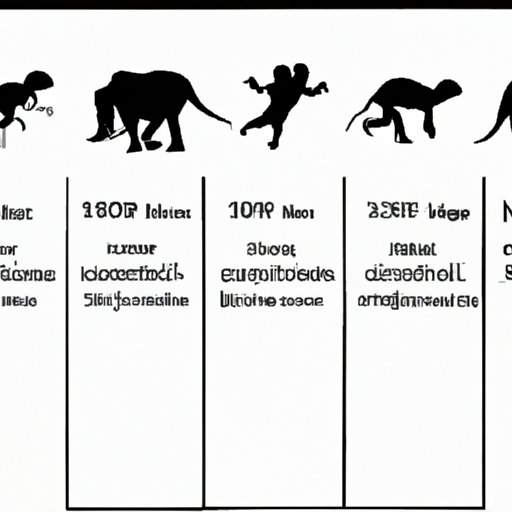Introduction
Evolution is one of the most important and fundamental concepts in the field of science. It is the process by which all living things on Earth have changed over time to become what they are today. While evolution has been studied for centuries, it was Charles Darwin who first formulated the modern theory of evolution through his book On the Origin of Species in 1859. Since then, countless studies have been conducted to further explore this phenomenon and its implications for our understanding of life.
Evolution: A Scientific Overview
The study of evolution has been an ongoing endeavor since Darwin’s groundbreaking work. Today, it is widely accepted as the primary mechanism through which species change over time. At its core, evolution is driven by the concept of natural selection, which states that individuals with advantageous traits will be more likely to survive and reproduce than those without them. This process of “survival of the fittest” leads to changes in the gene pool of a population over time, resulting in the emergence of new species.

Examining the Evidence for Evolution in the Fossil Record
One of the most important sources of evidence for evolution comes from the fossil record. Through the careful examination of fossils, scientists are able to trace the development of different species over millions of years. Key findings in the fossil record include the presence of transitional forms between species, such as the famous Archaeopteryx fossil, which exhibits characteristics of both reptiles and birds.
In addition, scientists are able to use the fossil record to determine the age of different species, as well as their geographical distribution. By studying the fossil record, scientists can gain insight into the complex interplay between environment, genetics, and adaptation that drives the evolutionary process.

Investigating the Role of Genetics in Evolution
Genetics plays an integral role in the evolutionary process. Genes are passed down from parent to offspring, and over time, these genes may undergo mutations that alter their function. This can result in beneficial or detrimental changes to the organism, depending on the environment it lives in. For example, a mutation that makes an organism more resistant to disease may be beneficial in a disease-ridden environment, while a mutation that reduces the organism’s ability to reproduce may be detrimental.
In addition, genetic variation within a species can lead to speciation, which occurs when a population becomes so genetically distinct that it can no longer interbreed with other populations of the same species. This is an important factor in the emergence of new species over time.
Exploring the Impact of Human Activity on Evolution
Human activity can also have a profound effect on evolutionary processes. The introduction of new predators or competitors can cause changes in the gene pool of a species, while the destruction of habitats can lead to the extinction of certain species. In addition, humans can directly influence the evolution of certain species through artificial selection. For example, farmers have been selectively breeding animals for thousands of years to produce desired traits, such as larger size or faster growth rates.
Humans can also inadvertently drive the evolution of certain species through activities such as pollution or the introduction of invasive species. These activities can create novel environments that favor certain traits, resulting in rapid evolutionary changes over time.
Conclusion
Evolution is an incredibly complex and fascinating phenomenon that continues to captivate scientists around the world. From the fossil record to genetics to human activity, there are countless factors that can influence the evolutionary process. As we continue to learn more about evolution, we can better understand the incredible diversity of life on Earth and our own place in the grand scheme of things.
(Note: Is this article not meeting your expectations? Do you have knowledge or insights to share? Unlock new opportunities and expand your reach by joining our authors team. Click Registration to join us and share your expertise with our readers.)
